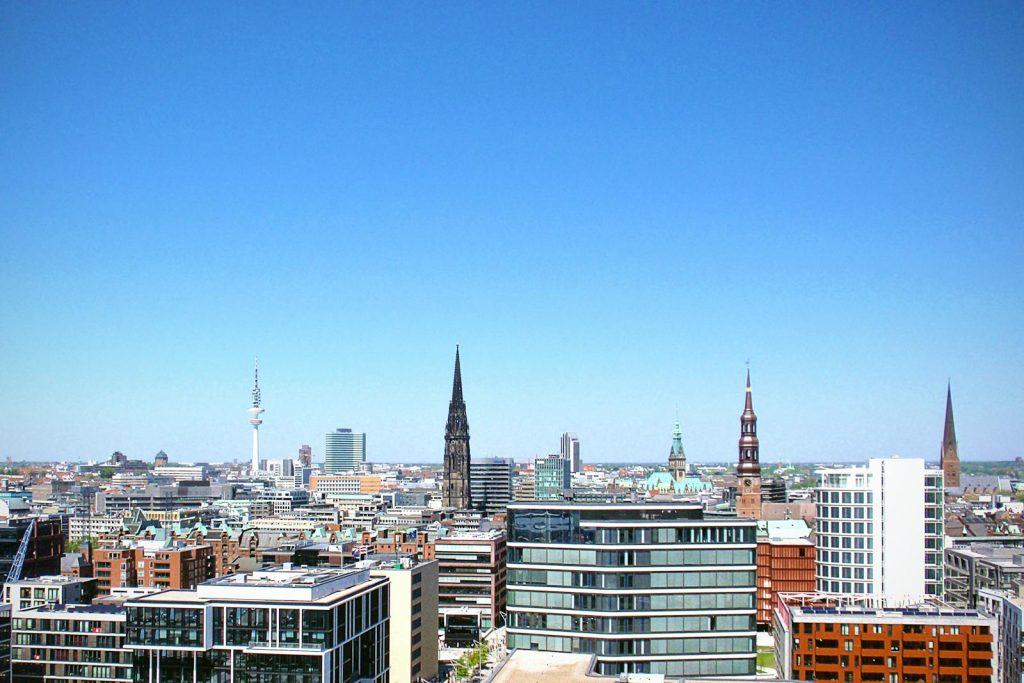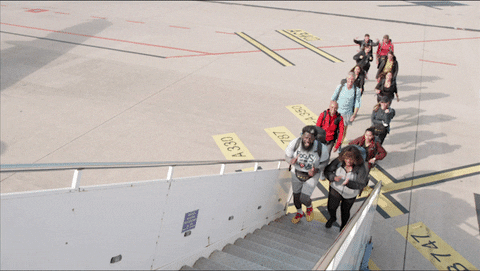Why Germany is Your Ideal Budget Travel Destination
When it comes to planning an economical getaway, Germany emerges as a prime candidate. One of the key reasons is the plethora of diverse activities available to travelers that won’t break the bank. Rich in history, Germany boasts numerous historical sites such as the Brandenburg Gate (visit) in Berlin (explore) or Neuschwanstein Castle (visit) in Bavaria, where entry fees are often quite reasonable compared to other European landmarks. Visitors can revel in the opportunity to explore the roots of the nation without straining their wallet.

In addition to its historical allure, the local cuisine offers a budget-friendly culinary experience. From sampling authentic bratwurst at a local market to enjoying a hearty schnitzel in a cozy pub, the food scene in Germany allows travelers to indulge without overspending. Many cities even have budget options such as bakeries and street food stalls that serve delicious meals for just a few euros. The concept of a good, cheap meal doesn’t seem like an urban legend here; it’s a delightful reality!

Furthermore, Germany’s vibrant cities present an excellent combination of culture and affordability. Whether it’s biking through the picturesque streets of Munich (explore) or enjoying a day in the bustling area of Hamburg (explore), the public transport system makes getting around convenient and cost-effective. Many cities also offer free walking tours, allowing participants to immerse themselves in their surroundings while learning valuable information about the culture and history. In fact, the only heavy burden travelers might carry is their overflowing souvenir bags!
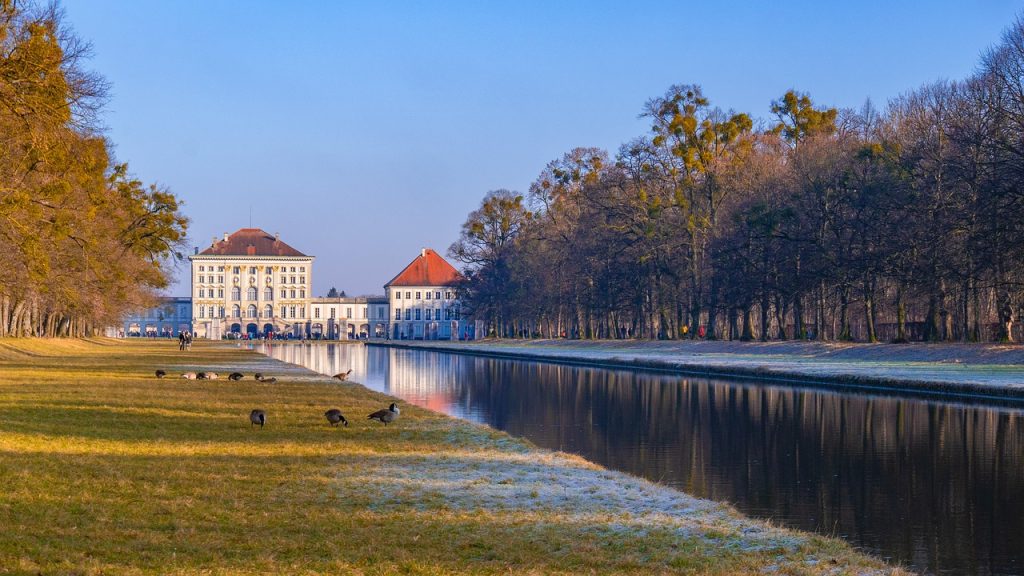
Now, let’s dispel a common misconception: not all of Europe is exorbitantly expensive! While some luxurious destinations may demand a hefty price tag, Germany adeptly combines affordability with exceptional experiences. You can truly explore the richness of culture, history, and cuisine in this remarkable country without an extravagant budget, making it a top choice for budget-conscious adventurers.
Preparing for Your Trip: Budget-Friendly Tips
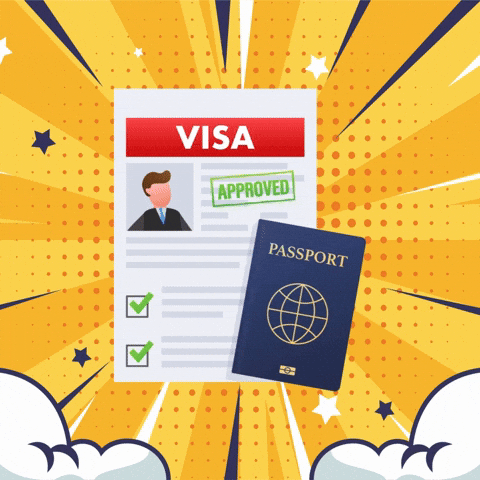
When embarking on an economical travel plan in Germany, thorough preparation is vital to ensure a smooth and budget-conscious experience. One of the first steps is applying for a visa, if necessary, to avoid last-minute complications. Research the visa requirements based on your nationality and ensure that you apply well in advance of your trip.
Choosing the right destinations is also essential. Germany is rich in diverse cities and breathtaking landscapes, each offering unique experiences at varying price points. Cities like Berlin (explore), Leipzig (explore), and Nuremberg (visit), often have budget-friendly attractions, while also providing a cultural feast that does not break the bank. Timing your visit can significantly impact travel costs; consider traveling during the shoulder seasons of spring or autumn, when accommodation prices often drop, and popular sites are less crowded.

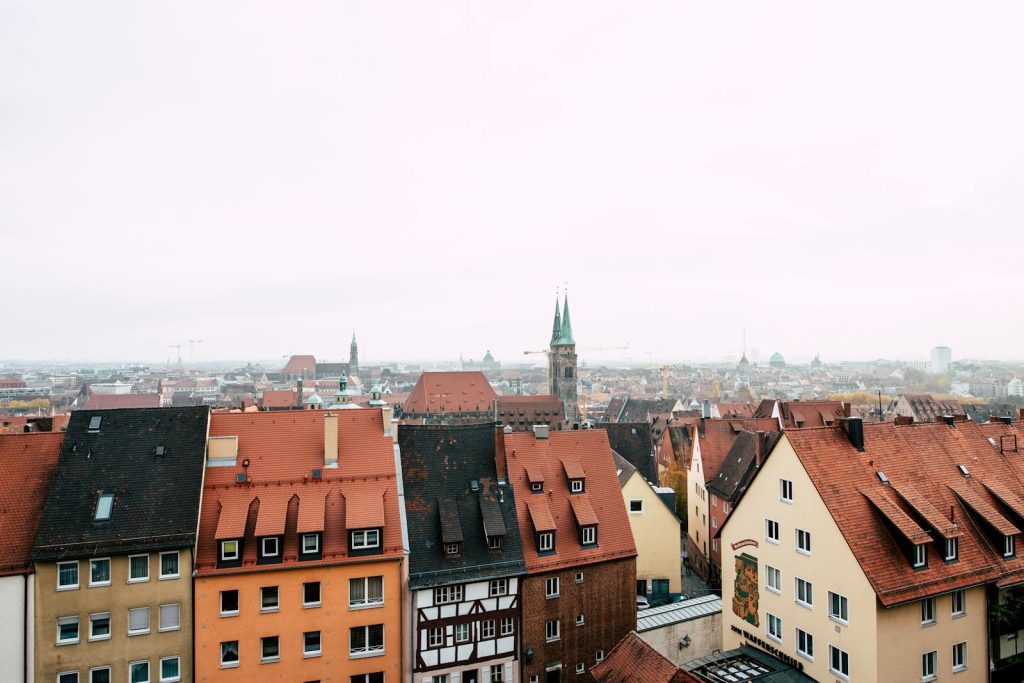
Flight costs can vary greatly depending on when you book and how flexible your schedule is. Utilize flight comparison websites to find the most economical options. Keep an eye out for discounts and fare alerts, as booking several months in advance often secures better deals. Additionally, flying into smaller airports or considering budget airlines can result in substantial savings.
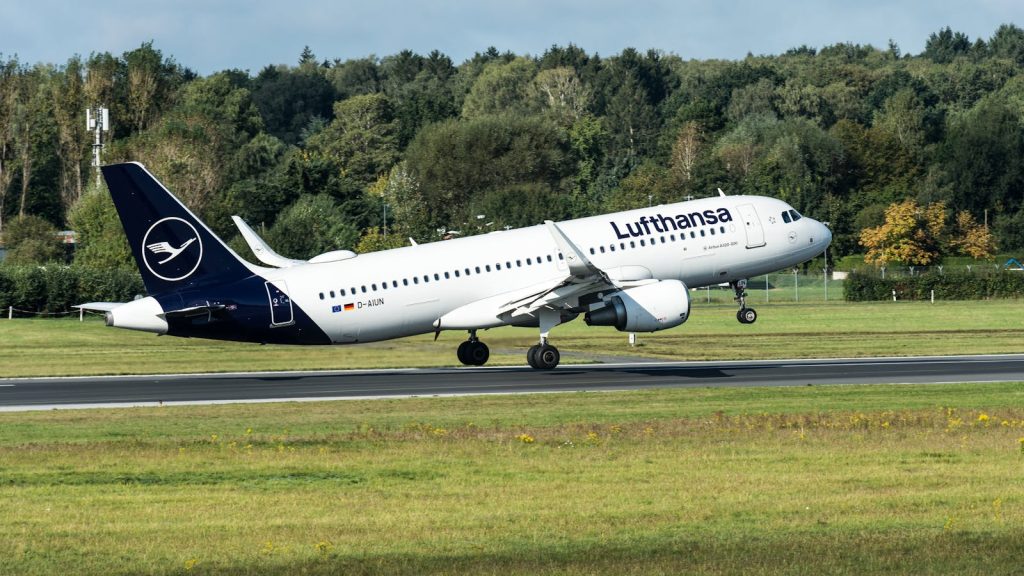
Your choice of lodging is another crucial factor in maintaining a budget. Look for hostels, guesthouses, or budget hotels that provide comfort without a hefty price tag. Sites that offer alternative lodging options can also present affordable choices that add a unique touch to your experience. For maximum savings, aim to book accommodations in advance, especially during peak travel seasons.

Packing wisely is just as important. Avoid the common pitfall of overpacking by creating a detailed checklist, focusing on versatile clothing and essential items. This not only saves on baggage fees but also enhances the convenience of navigating through various destinations. Remember that less is often more, ensuring you can enjoy your travels unencumbered by excessive luggage.
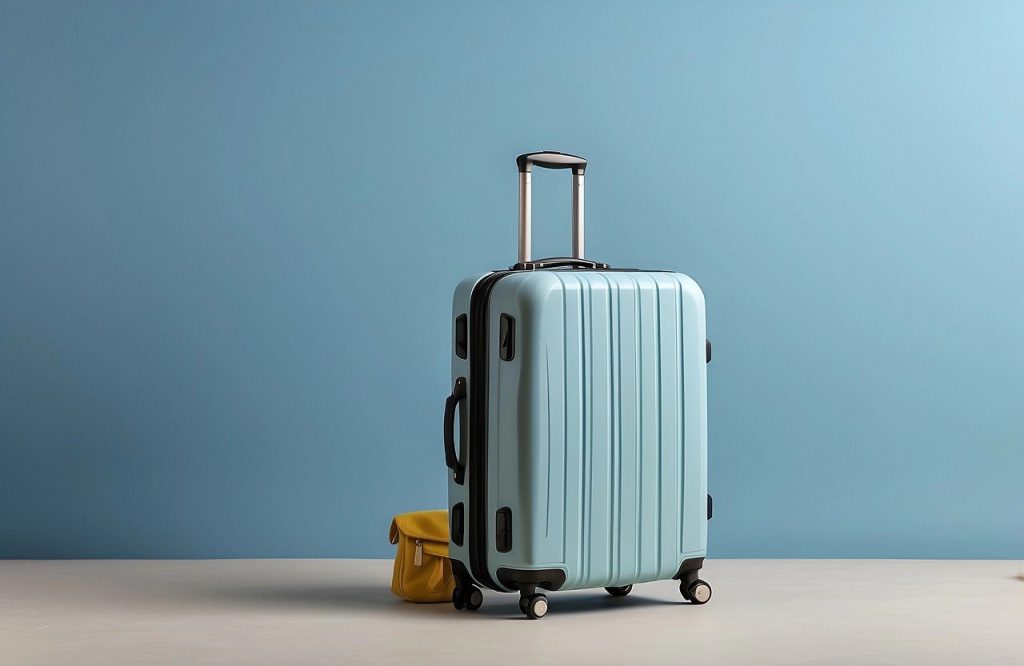
Check Flight Options to Berlin
Accommodation Options in Berlin and Beyond
Departure Day: Ensure a Smooth Start
As you prepare for your adventure in Germany, the departure day can set the tone for your entire trip. It is essential to manage your time effectively to ensure a hassle-free experience at the airport. Start your day by waking up early, allowing ample time for any unexpected delays. Aim to arrive at the airport at least three hours prior to your flight, especially if you are not accustomed to air travel.

Once you arrive, head straight to the check-in area. For those utilizing an airline app, check in online prior to your arrival; this can save you considerable time. Once you’re checked in, proceed to the baggage drop-off point if you have luggage to check. Always confirm the weight limit of your bags to avoid any last-minute surprises at the scale!
Next, it is time to navigate through airport security. This is where many travelers find a source of anxiety. Funny enough, I once saw a man confidently walk through security only to set off the alarms because he forgot to remove his belt. While this anecdote brings a chuckle, it underscores the importance of being prepared. Wear easily removable items and ensure that any liquids are within the permissible limits and stored in a clear, resealable bag. Remember, the golden rule is 3-1-1, referring to 3.4 ounces of liquid in one quart-sized bag, and one bag per passenger.
After security, locate your departure gate and keep an eye on the flight information display boards for any updates. Boarding typically begins 30 minutes before departure. Listen for announcements, as airlines often call for priority boarding or may request other groups to board first. This efficiently manages the boarding process and ensures everyone is seated promptly, allowing you to start your journey to Germany stress-free.
Onboard Etiquette: Keeping Calm and Carrying On
Traveling can be both exhilarating and exhausting, particularly when embarking on a long flight to Germany. As you embark on your journey, maintaining a friendly attitude is paramount for an enjoyable experience, not just for you but for those around you as well. A smile, a simple “hello,” or a polite exchange can significantly elevate the mood onboard, creating a more congenial environment. Moreover, as fellow travelers navigate their discomforts—whether it’s an overheard snore or cramped seating—your pleasant demeanor can often diffuse potential tensions.
Handling layovers effectively requires a blend of preparation and adaptability. When faced with an extended layover, consider exploring the airport’s amenities, from dining options to relaxation lounges. Engaging in light stretching exercises or even a brief walk can invigorate the senses and help shake off any lingering fatigue. However, it is essential to remain mindful of time, ensuring that you return to your gate well ahead of boarding time.


Jet lag is another common tendency, particularly when crossing multiple time zones. To mitigate its effects, align your sleep schedule with your destination as much as possible before your travel. Consider adopting the local time zone at least a few days in advance; an approach that may require sacrificing some night owls’ habits but will reward you with more energy upon arrival. On the flight, stay hydrated and avoid excessive caffeine and alcohol, as both may disrupt your circadian rhythms post-landing. And let’s not forget the power of humor—often, recounting your own comical travel experiences can serve as a great icebreaker; after all, who hasn’t found themselves in a bewildering situation at the airport or on a crowded flight?
By embodying a calm and friendly attitude while effectively managing layovers and jet lag, you can make your trip to Germany far more enjoyable, setting the stage for a remarkable 10 days of economical adventure.
Touchdown! Navigating Arrival and Transfers
Upon arriving in Germany, travelers are greeted with a seamless disembarkation process that sets the stage for their grand adventure. As you exit the plane, excitement mounts, but it is essential to remain composed and follow the signs to manage your arrival effectively. First and foremost, ensure that your travel documents are in hand as you proceed through customs, where the myriad of tourists may cause a delay reminiscent of an amusement park line. A little patience here will go a long way.

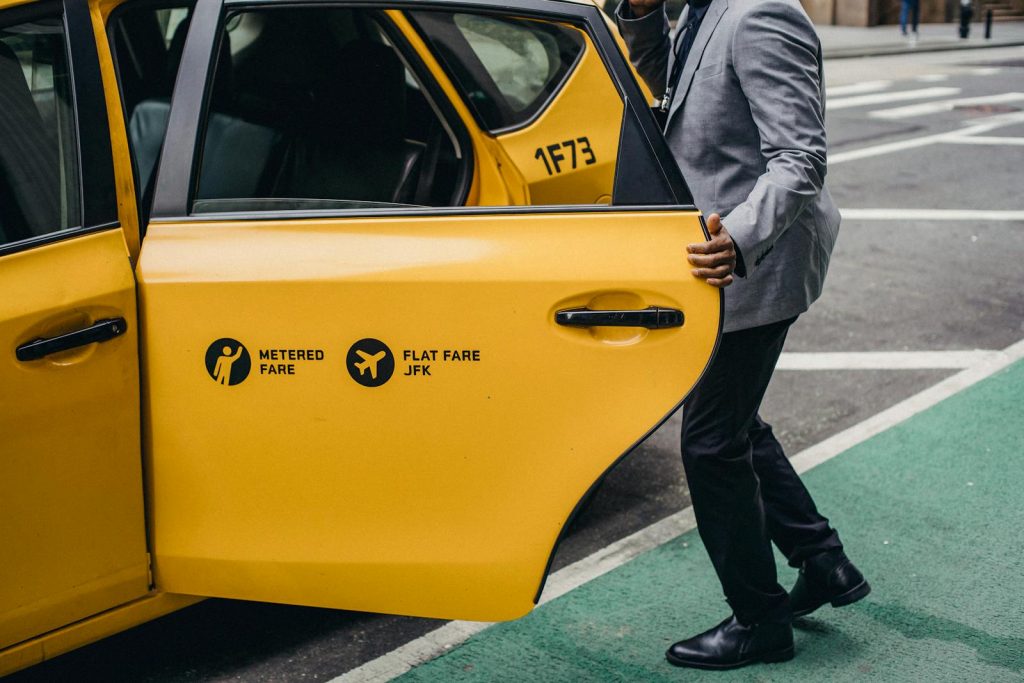
Once you have cleared customs, the next challenge is transferring to your accommodation. The opportunities for economical transport options are abundant, providing a range of choices suitable for various budgets. Germany’s public transportation system boasts efficient trains, trams, and buses that connect major airports to city centers. For an easy transition, opting for regional trains can be an economical choice, often taking less time than expected, especially if you manage to avoid the embarrassment of mistakenly boarding the wrong train. We’ve all been there! Picture this: a train destined for a charming countryside while you’re trying to reach Berlin’s bustling metropolis. A humorous anecdote in retrospect, but one to learn from.
Alternatively, shuttle services can offer a middle ground between expense and convenience, often provided by hotels as complimentary amenities. If you seek more flexibility in your transfers, consider ride-sharing apps that have gained immense popularity in urban areas. These can be slightly pricier than public transport but can save your weary feet from wandering the streets with heavy luggage. No matter your choice, the key is to remain aware of your surroundings and keep important contact information at the ready, ensuring that your arrival in Germany launches your adventure smoothly and without a hitch.
Day 1: Arriving in Berlin
Arrive at Berlin Brandenburg Airport and take the efficient regional trains to the city center. Check into budget accommodations such as hostels or guesthouses around Friedrichshain for a vibrant atmosphere. Spend the afternoon exploring the historic landmarks, including the Brandenburg Gate (visit) and the Berlin Wall Memorial (visit). For dinner, seek out local cuisine at a nearby currywurst stand for an authentic taste. A quirky fact about Berlin: it has over 180 museums!
Day 2: Culture and History in Berlin
Begin your day with a free walking tour starting at Alexanderplatz at 10:00 AM. This tour offers fascinating insights into Berlin’s rich history. For lunch, opt for affordable Turkish kebabs in Kreuzberg, a culinary hub. In the afternoon, visit the East Side Gallery (visit), a canvas of street art stretching along the former Berlin Wall (visit). End your day with a stroll along the Spree River. Remember, Berliners are known for their no-nonsense attitude; polite greetings go a long way.
Day 3: Day Trip to Potsdam
Catch an early S-Bahn train to Potsdam, just a 30-minute ride from Berlin. Spend the morning at Sanssouci Palace (explore), exploring its stunning gardens and art. Afterward, head to the Dutch Quarter for lunch at a casual bistro. In the afternoon, visit the Cecilienhof Palace (explore), site of the historic Potsdam Conference. Return to Berlin in the evening and unwind at a local bar. Fun fact: Potsdam is home to the largest film studio in Europe, Babelsberg!
Day 4: Travel to Munich
Take a morning train to Munich (explore), which takes approximately four hours. Upon arrival, find budget housing in the Glockenbachviertel district. After settling in, take a leisurely walk around Marienplatz and visit the impressive New Town Hall. Dinner can be enjoyed at a beer garden, where you can taste some of Bavaria’s famous sausages. A quirky aspect of Munich is its dedication to celebrating a variety of festivals, from Oktoberfest to Christmas markets!
Day 5: Museums and Parks in Munich
Start with a visit to the Deutsches Museum (visit), the largest museum of science and technology in the world. For lunch, head to Viktualienmarkt, savoring local kasespatzle, a delightful cheese dish. Spend the afternoon in the English Garden (explore); consider renting a bike to navigate its extensive paths. In the evening, explore the Hofbräuhaus for a lively beer hall experience. Munich locals enjoy a relaxed social atmosphere, so feel free to join in conversations!
Day 6: Day Trip to Neuschwanstein Castle
Embark on an early train ride to Füssen, followed by a short bus trip to Neuschwanstein Castle (explore). Plan your visit ahead to avoid crowds; morning tickets are often less packed. Enjoy breathtaking views and learn about King Ludwig II’s whimsical architecture. Pack a picnic lunch to enjoy on the grounds. Return to Munich for dinner at a wallet-friendly local pizzeria. An interesting fact: Neuschwanstein inspired Disney’s Sleeping Beauty Castle!
Day 7: Travel to Nuremberg
Utilize Deutsche Bahn’s service to journey from Munich to Nuremberg, taking under two hours. Once there, explore the historic Nuremberg Castle before grabbing lunch at a traditional bratwurst stand. Dedicate the afternoon to the Documentation Center Nazi Party Rally Grounds for a profound historical experience. In the evening, discover local beers at a nearby brewery. Nuremberg is famous for its gingerbread, so be sure to pick some up!
Day 8: Gastronomic Experience in Nuremberg
Visit Nuremberg’s old town, starting with a vibrant market for breakfast. Engage in a food tour to sample local delicacies, including Nürnberger Lebkuchen (gingerbread). In the afternoon, visit the Albrecht Dürer House to appreciate the artistry of this famous painter. Dinner can be found in a quaint restaurant offering regional wine. An intriguing custom: Nuremberg’s Christmas market is one of the oldest in the world, attracting thousands each year!
Day 9: Journey to Hamburg
Travel to Hamburg via a swift train journey, settling into accommodation near the lively St. Pauli district. Discover the historic Speicherstadt (explore) and treat yourself to lunch at a café featuring fresh seafood. In the afternoon, enjoy a boat tour through the harbor, a hallmark of Hamburg’s maritime culture. Dinner can be at a local pub with live music, where locals gather. What’s quirky? Hamburg has more bridges than Venice!
Day 10: Exploring Hamburg
Your final day can focus on the impressive Miniatur Wunderland, the world’s largest model railway exhibition, which will captivate visitors of all ages. For lunch, opt for an inexpensive vegetarian spot nearby. Spend the afternoon leisurely strolling through the Planten un Blomen park (visit), famous for its botanical gardens. Wrap up your trip with a visit to a local concert or cultural event that showcases Hamburg’s vibrant arts scene. Remember, Hamburg is renowned for its hospitality!
Extending Your Stay: Alternative Activities and Exploration
For those travelers fortunate enough to extend their time in Germany, the opportunities for exploration and unique experiences abound. Beyond the well-trodden paths of the Berlin Wall or Neuschwanstein Castle, Germany offers a plethora of delightful adventures that promise to add flavor to the travel experience—all while maintaining a budget-friendly approach.
Consider venturing into the picturesque Black Forest region, where hikers can immerse themselves in nature and discover enchanting trails. The region is replete with quaint villages, traditional cuckoo clocks, and the glorious aroma of Black Forest cake wafting through the air. Take a moment to capture a selfie with a life-sized chocolate cake statue—after all, who wouldn’t want to brag about their “dessert adventures” on social media?
If you find yourself craving a more urban setting, head over to Leipzig. This vibrant city is known for its artistic community and dynamic cultural scene. Spend an afternoon visiting quirky galleries or experiencing the local coffee culture in an independent café. With plenty of opportunities for people-watching, you might just find inspiration to start a blog about “the art of people-watching.” To add some whimsy, throw in a cheeky survey of the most distinctive fashion choices you encounter.
For history buffs, a detour to Nuremberg offers rich experiences at its medieval castle and the infamous Documentation Center Nazi Party Rally Grounds. Historical narratives can be both enlightening and captivating, prompting travelers to ponder why anyone would ever put a pineapple on pizza—an ongoing mystery to contemplate during downtime. This region’s dynamic culinary scene also presents a chance to taste authentic bratwurst; a thrilling addition to the palate that beckons food enthusiasts to explore regional specialties.
Therefore, contemplating a stay extension offers a range of humorous yet enriching experiences in Germany. With alternatives that showcase the country’s culture, nature, and culinary delights, you may return home not just richer in experiences, but with whimsical tales to share with family and friends that could spur endless laughter.
Luggage Management: Tips for Check-in & Check-out

Traveling efficiently often hinges on effective luggage management, particularly in situations where one arrives ahead of hotel check-in times or needs to vacate the room before a flight. It is essential to have a plan in place for your belongings to minimize stress and ensure a smooth travel experience.
One popular strategy is to utilize luggage storage services. Many cities, including those in Germany, offer convenient options for storing your bags. Services can often be found near train stations, airports, or tourist attractions, allowing you to explore the area unencumbered by heavy luggage. These facilities can usually accommodate various sizes of bags and offer affordable, hourly rates. This way, travelers can enjoy the day without dragging their suitcases around or worrying about where to keep them.
Aside from professional storage services, there are creative tactics to manage luggage. Packing a small daypack can be particularly useful for essentials during your travels. Knowing how to efficiently pack allows you to keep only what you need readily available, leaving larger items secured and stored. Remember to bring a reusable shopping bag; this can act as an additional container for any souvenirs or items you acquire during your adventures.
Despite our best intentions, there are times when things go awry. For instance, I once witnessed an amusing situation where a traveler attempted to check out of their hotel with their massively oversized suitcase, which inevitably got stuck in the revolving door. Eventually, a couple of amused hotel staff members helped to free both the suitcase and the embarrassed traveler. Such mishaps serve as a reminder that managing luggage doesn’t have to be a serious endeavor; a light-hearted perspective can transform an ordeal into a memorable story.
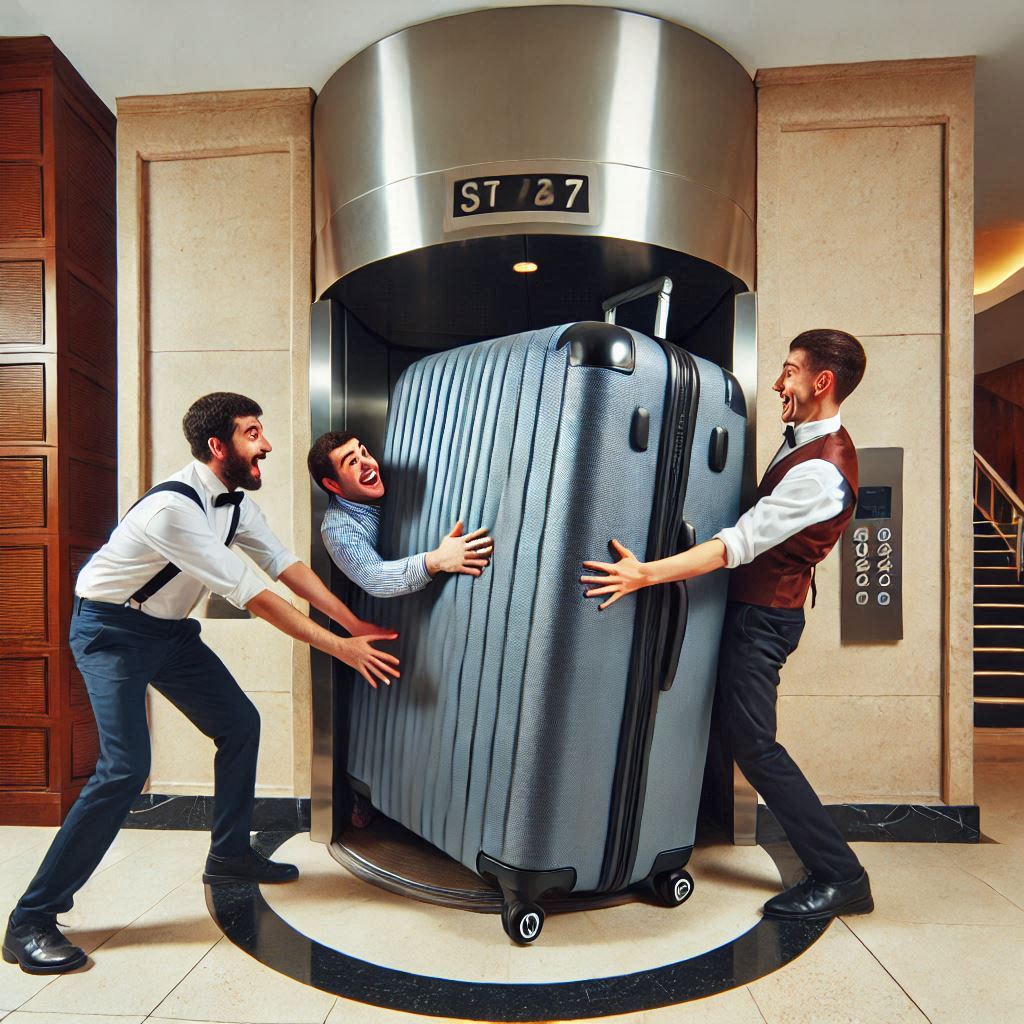
Effective luggage management goes beyond mere convenience; it enables travelers to embrace their adventures fully. By utilizing storage services, packing wisely, and maintaining a sense of humor, anyone can navigate travel with ease.
Final Day: Wrapping Up Your Adventure
As your exciting journey through Germany comes to a close, it’s essential to maximize your last day and ensure a seamless return to your home country. Start your morning with a leisurely breakfast in a local café, savoring the final flavors of German cuisine. Once fortified, it’s time to tackle that list of souvenirs you promised to bring back for friends and family. From delightful handcrafted goods to unique culinary treats, German markets offer a plethora of options. Make sure to visit local artisans or popular souvenir shops that showcase the region’s culture, ensuring that each purchase tells a story.

While souvenir shopping can be a delightful experience, it is wise to manage your time effectively to prevent any last-minute pandemonium—after all, who hasn’t been caught sprinting through an airport with one shoe in hand!!?
To avoid such scenarios, plan your departure well in advance. Confirm your flight schedule, check in online if possible, and allocate enough hours for the travel time to the airport, keeping in mind potential delays. Public transportation in Germany is efficient, so consider utilizing trains or buses for a cost-effective transfer to the airport. However, always verify the latest schedules, as last-minute changes can catch travelers off guard.
As a friendly reminder, make a checklist of your essentials—passports, travel documents, and, of course, your treasured souvenirs. Contrary to common belief, airports do not accept “urgent pleas” for forgotten items! Reviewing your packing ensures that nothing is left behind, allowing for a stress-free departure. After all, returning home should be as pleasant an experience as the adventure itself, without the added chaos. Thus, embrace your final day, capturing memories even as you prepare to say goodbye to the vibrant cities of Germany.
After Your Visit: Keeping the Adventure Alive
Returning home after an exciting adventure in Germany doesn’t have to signify the end of your journey. There are numerous ways to keep the spirit of travel alive long after you’ve left the vibrant streets, awe-inspiring castles, and picturesque landscapes of this beautiful country. One effective method is to create a travel album or scrapbook capturing your memories. Organizing your photographs, ticket stubs, and notes from your trip not only serves as a personal keepsake but also allows you to relive those fantastic moments any time you wish.
Additionally, consider the culinary delights you encountered during your German adventure. You can bring the flavors of Germany into your home by cooking regional dishes. Recipes for classic German meals such as schnitzel, sauerkraut, or pretzels can be found online, allowing you and your loved ones to enjoy a taste of Germany. Cooking together can foster a sense of togetherness and provide a delightful avenue to share your experiences, making it feel as though the journey is still ongoing.
Another enjoyable way to reminisce about your travels is by sharing your stories with friends and family. Consider hosting a casual gathering where you can showcase your travel treasures, such as souvenirs and photos, while discussing your adventures. This not only sparks inspiration for potential future trips among your friends but also creates a shared travel culture that keeps the spirit of exploration alive in your community. Encourage them to ask questions and share their own travel dreams, which may lead to exciting planning for future expeditions.
Ultimately, the adventure doesn’t have to end when you return home. By creating lasting memories through various means, you can enrich your experience in Germany and ignite a passion for travel in those around you.


